FORT LAUDERDALE, FL
Due to the COVID19 outbreak, many have been furloughed from their jobs or otherwise affected financially. Unfortunately, the bills don’t stop, so it may be of no consolation that most of us are spending less money being forced to remain at home.
While many lenders and local governments are helping Americans with temporary relief from some expenses, most lenders and governments have been mute about suspending rent and mortgage payments.
RENT/EVICTION:
If you cannot pay your monthly rent, the most important starting point is communication with your landlord. Written correspondence, by text or email, is preferable so that you have proof of any agreement you may reach. Although oral agreements are valid and enforceable (if the term is for less than a year), they are far more difficult to prove if your landlord suffers from selective memory, as is often the case in South Florida.
A reasonable proposal to make to your landlord (remember, they have bills to pay, too), would be for him/her to apply your last month’s rent (if prepaid) and/or security deposit, which you, in turn, promise to replenish in 90 days. This is just an example of how you may be able to resolve the issue.
Most landlords should offer some flexibility and understanding; however, they are not legally required to and, if your landlord serves you with a 3-Day Rent Demand, your legal rights as a tenant can be taken if you fail to take appropriate action. If you do receive such a written notice from your landlord, you are advised to contact an attorney who practices Landlord/Tenant law immediately as your rights can be irreparably stripped.

If you face EVICTION, then it’s far from the end of the World, in this environment. While I cannot officially guarantee this, I can say with great certainty that NO Judge or Sheriff in the State would authorize or execute an eviction to proceed until people can work again. So, if you can’t pay your rent and your landlord is unwilling to work with you, they can terminate your tenancy (unless the Government orders otherwise – stay tuned), but they’ll be unable to evict you for the foreseeable future. You would, of course, be well-advised to get a new lease signed elsewhere so you have somewhere to go when the Sheriff, ultimately, comes to post the 24-hour Notice. This is especially important because you want your prospective new landlord to do a background check on you BEFORE an eviction lawsuit has been filed against you by your current landlord, or you could have a tough time finding a new home.
Final note concerning EVICTION: lawsuits for eviction can be defended in court, but you should retain counsel immediately if you get served because you will only have 5 DAYS to respond. If you fail to file a response (and deposit the rent arrears into court, if required, there are exceptions), your rights will be forever lost.
MORTGAGE/FORECLOSURE:
If you cannot pay your monthly mortgage bill, you should first call your lender and investigate on-line to see if your monthly obligation has been suspended. For example, Bank of America generously announced that they would suspend all mortgage payments for 90 days. You should also check recent Orders from your City, County and State Governments, as well as the Federal Government, frequently, as this is a moving target right now.
If you do not have such luck; however, then you still have options available to you. Most lenders will likely hold off on filing mortgage foreclosure lawsuits for quite some time. Typically, they do not take this action until after 90 days from when the loan first became delinquent, but in the current climate, we can reasonably expect that they won’t file suit for far longer than that. This should provide most an opportunity to catch up, over time if possible, and lenders will show extreme restraint with borrowers who are actively working to catch up.
If you do end up in a FORECLOSURE lawsuit, then you will be faced with an opportunity, albeit a stressful one. First off, do not attempt to defend the case yourself (Google is not a lawyer) and do not pay any monies to the bank at this point without a signed, written forbearance agreement in place first. Most capable attorneys who defend foreclosures can help you, ultimately, to get your LOAN MODIFIED with a smaller monthly payment than you were previously making. The arrears, penalties, default interest and other amounts will be tacked on to the end of the new, 30 year-term as a balloon, which will give you the opportunity to refinance the loan many years later when you will have, hopefully, acquired some new equity in the property.
If you’re in foreclosure and you don’t qualify for a loan modification, all is not lost. You should have the opportunity (toward the end of the process is advisable) to do a SHORT SALE. This is important to minimize the impact of the foreclosure to your credit. This does mean being forced to sell your property, but if you have counsel defending you in court, and a good realtor to market the property for a short sale, you will have control over the process and will never have to worry that the Sheriff could be on their way to evict you from your home.
QUESTIONS: IF YOU HAVE ANY QUESTIONS THAT HAVE NOT BEEN ADDRESSED HERE, PLEASE EMAIL david@strausslaw.net. YOU WILL NOT BE BILLED.
David A. Strauss, Esq.
THE STRAUSS LAW FIRM, P.A.
401 East Las Olas Blvd, Suite 1400
Fort Lauderdale, FL 33301
EMAIL: info@strausslaw.net
CELL: (954) 610-1353

